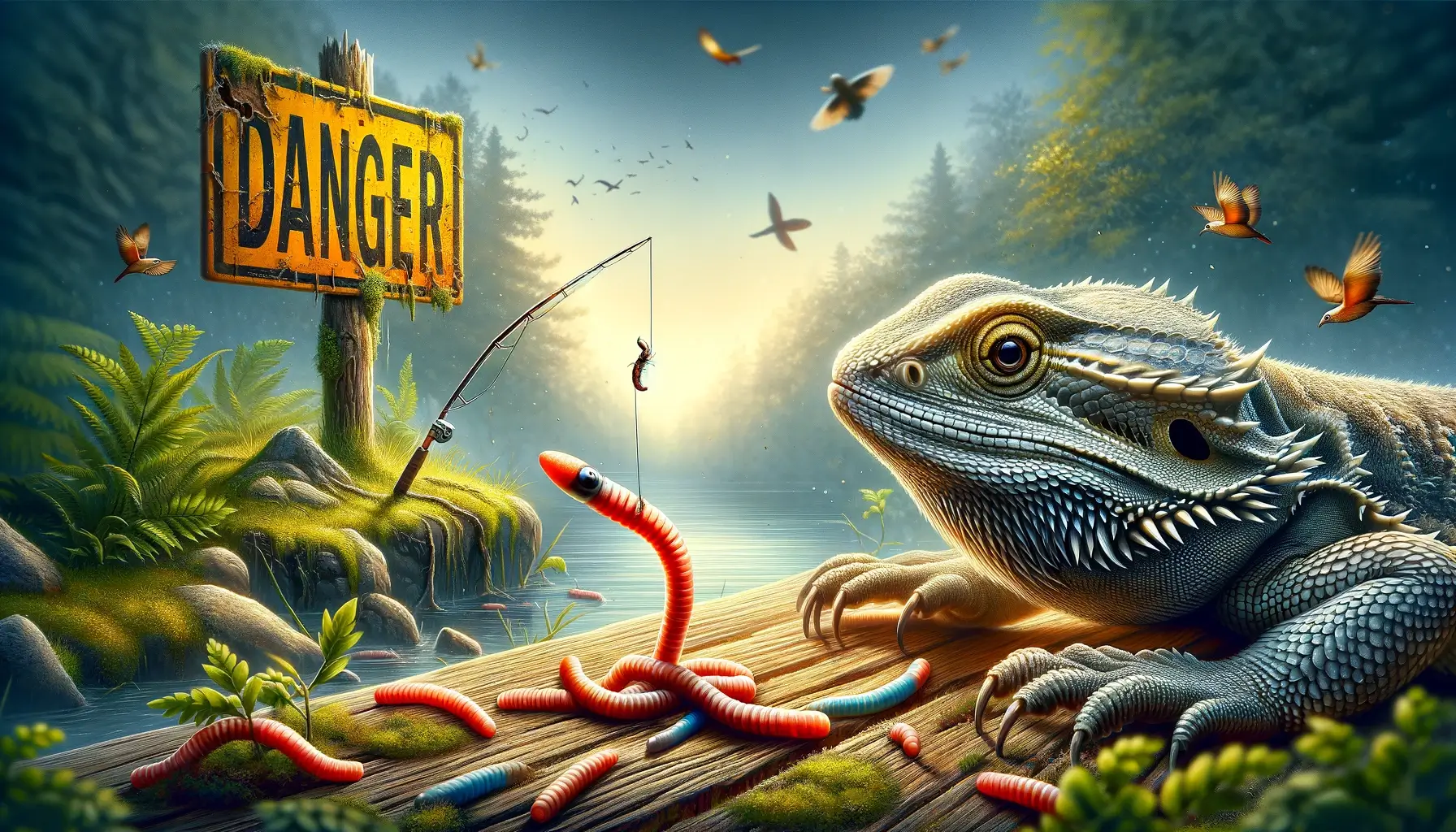While you might think feeding your bearded dragon fishing worms is a cost-effective and easy meal solution, there’s more to this scenario than meets the eye. Yes, bearded dragons can eat a variety of insects, but does that include fishing worms? Hidden dangers lurk in this seemingly harmless choice that could harm your pet. After learning these risks, you might reconsider what you put in your bearded dragon’s feeding dish. Curious to know more? Let’s dissect this further.
Understanding Bearded Dragons’ Diet
To properly care for your bearded dragon, it’s crucial to understand their dietary needs as they are primarily omnivores, consuming a balanced diet of plant-based foods and insects. As a responsible pet owner, you’ll need to ensure that their diet is varied and nutritionally balanced.
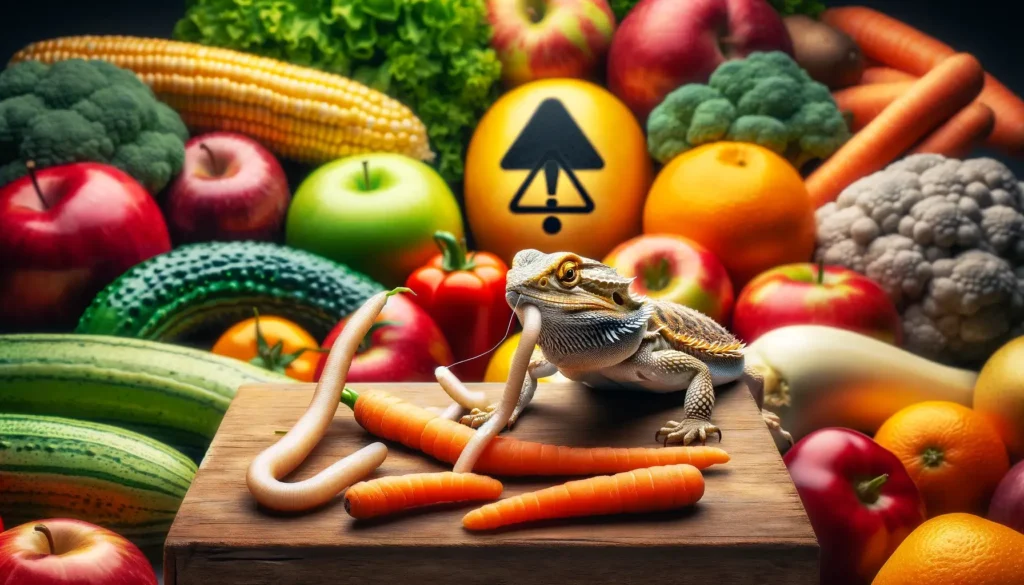
Your bearded dragon’s diet should include a mix of leafy greens, fruits, and insects. Leafy greens should comprise about 20-30% of their diet, with insects making up the remaining 70-80%. It’s important to note that bearded dragons can’t eat all types of fruits and insects. You’ll need to research and find out which ones are safe for your pet.
Insects should be gut-loaded, meaning you feed them nutritious foods before offering them to your pet. This ensures your dragon gets the necessary vitamins and minerals. Fruits should be given sparingly, as too much can lead to health issues.
Fishing Worms: What’s Hidden?
While exploring suitable insects for your bearded dragon’s diet, you might wonder about the suitability of fishing worms. Wouldn’t you consider these readily available, wriggling critters a convenient option? But there’s more to fishing worms than meets the eye.
Primarily, it’s essential to understand that fishing worms aren’t natural prey for bearded dragons. In their wild habitats, bearded dragons don’t encounter these worms. Thus, it’s a foreign food item, which raises the question of compatibility with your pet’s digestive system.
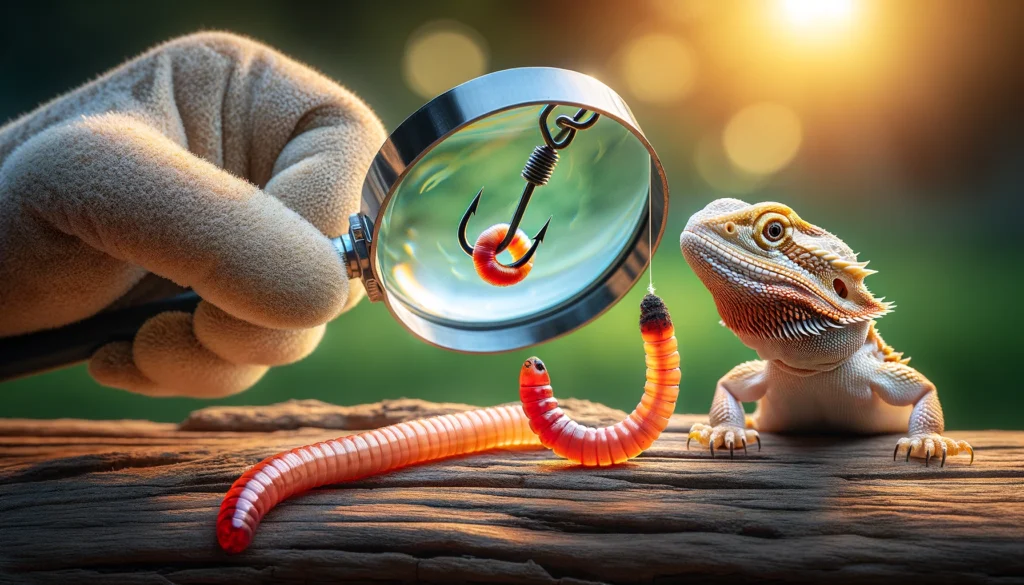
Also, fishing worms are often larger and tougher than the worms or insects typically included in a beardie’s diet. The size and texture could pose problems. These creatures are bred to survive underwater and on fishhooks, making them more robust than your average worm.
Moreover, consider the environment in which fishing worms are raised. Are they organic? Could they have been exposed to pesticides or other harmful substances? Remember, your bearded dragon will consume anything the worm has ingested. Considering these hidden aspects is critical before incorporating fishing worms into your pet’s diet.
Risks Associated With Fishing Worms
Given the concerns you might already have about introducing fishing worms into your bearded dragon’s diet, it’s important to delve deeper into the potential risks associated with these creatures.
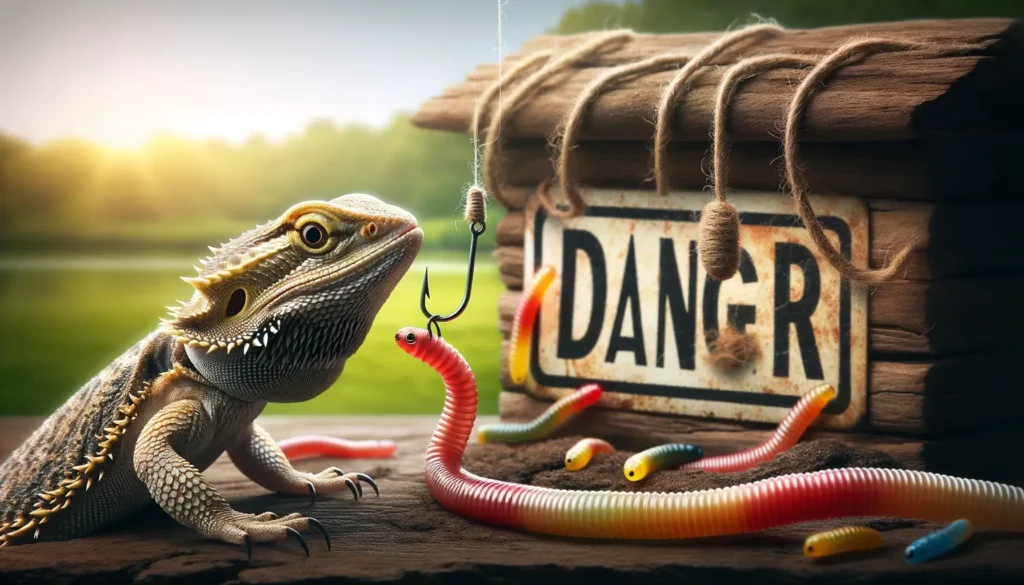
Parasite Risk: Fishing worms can carry parasites. These can harm your bearded dragon’s digestive system, causing illness or death.
Nutritional Deficiency: Fishing worms aren’t nutritionally balanced for bearded dragons. They lack essential vitamins and minerals your pet needs for healthy growth and development.
Toxin Exposure: Fishing worms might have been exposed to pesticides or other harmful chemicals. If ingested, these toxins can have severe health effects on your bearded dragon.
Choking Hazard: Fishing worms are slippery and difficult for a bearded dragon to grasp. This could lead to choking, particularly with smaller or younger bearded dragons.
Understanding the potential dangers of fishing worms is key to providing a safe and healthy diet for your bearded dragon. It’s not about limiting your pet’s diet but about making informed choices that ensure their wellbeing. Remember, your bearded dragon’s health and happiness depend on your care and attention.
Real Life Impact of Poor Diet Choices
If you’re not careful about what you feed your bearded dragon, the consequences can be severe and long lasting. It’s not just about the immediate discomfort or illness your pet may experience; poor diet choices can have broader, more profound effects on your bearded dragon’s overall health and lifespan.
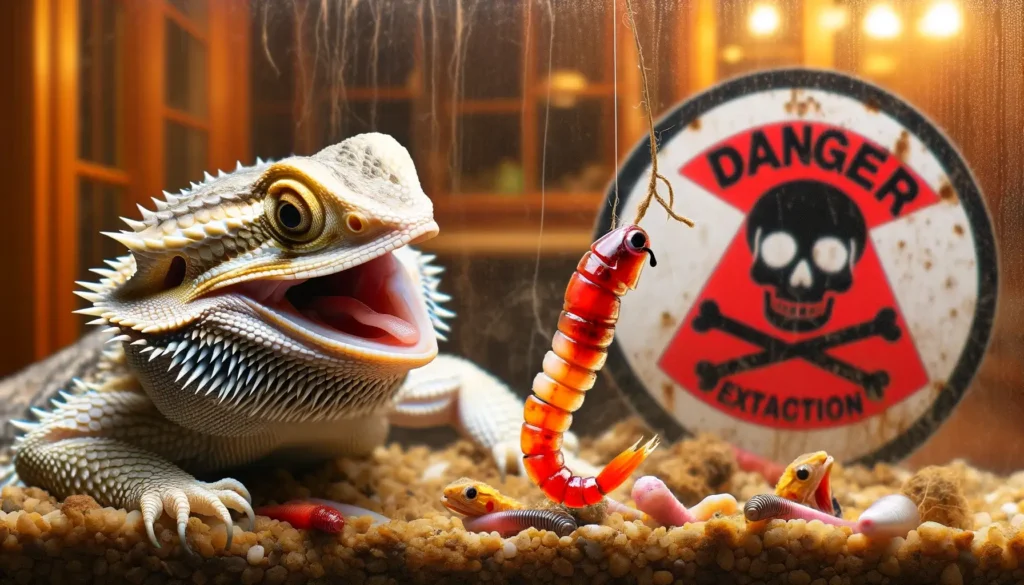
Feeding your bearded dragon fishing worms regularly can lead to malnourishment. These worms are not nutritionally balanced for a bearded dragon’s dietary needs. They can lack vital nutrients like calcium and vitamins your pet needs for bone health and crucial bodily functions.
Moreover, fishing worms can harbor parasites and harmful bacteria, leading to infections that can cause serious illness or even death. Dealing with such health issues can distress you and your pet, not to mention the potential vet expenses.
Lastly, a poor diet can impact your bearded dragon’s behavior. They may become lethargic, lose their appetite, or exhibit signs of stress. Remember, a healthy bearded dragon is an active and responsive one. So, don’t jeopardize your pet’s health with poor dietary choices. Sticking to a diet approved by herpetological experts is safer and wiser.
Safer Dietary Alternatives for Bearded Dragons
So, what should you feed your bearded dragon instead of fishing worms to ensure a balanced, healthy diet? The answer lies in diversifying your dragon’s diet with safe, nutritious options. Let’s consider some of these:
Leafy Greens: These are rich in vitamins and minerals. Kale, collard greens, and mustard greens are excellent choices. However, avoid spinach as it can hinder calcium absorption.
Vegetables: Squash, peas, bell peppers, and carrots can be offered. These provide essential nutrients without the risk of parasites.
Fruits: Serve as a treat. Berries, apples, and peaches are favorites, but too much fruit can lead to diarrhea.
Live insects: Crickets, mealworms, and dubia roaches are safe and provide protein.
Always ensure your dragon’s food is pesticide free and appropriately sized. Overfeeding can lead to obesity, so monitor their intake. Remember, a well-fed dragon is a happy, healthy dragon. By choosing safer dietary alternatives, you’re not just feeding your dragon; you’re nurturing its wellbeing, granting it a life of health and freedom.

